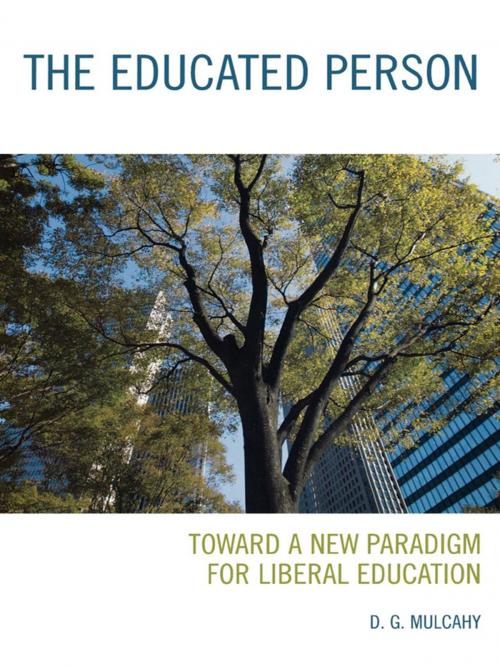The Educated Person
Toward a New Paradigm for Liberal Education
Nonfiction, Reference & Language, Education & Teaching, Educational Theory, Aims & Objectives, Educational Reform| Author: | D. G. Mulcahy | ISBN: | 9780742577824 |
| Publisher: | Rowman & Littlefield Publishers | Publication: | March 27, 2008 |
| Imprint: | Rowman & Littlefield Publishers | Language: | English |
| Author: | D. G. Mulcahy |
| ISBN: | 9780742577824 |
| Publisher: | Rowman & Littlefield Publishers |
| Publication: | March 27, 2008 |
| Imprint: | Rowman & Littlefield Publishers |
| Language: | English |
Liberal education has long been a fascination for scholars in a variety of disciplines and is closely associated with the idea of the educated person. Seen at one time as a matter for colleges and universities, over the years it has become central to the debate surrounding general education in high school and even the earlier grades. Yet so many and varied are the uses of the term 'liberal education' that the question arises of whether and how the idea is any longer a useful or helpful construct. In what way might it speak helpfully to educational challenges we face today? In what ways does it still speak helpfully to educational challenges we face today? In what ways might it be a guide as we search for a better way forward? These are the central questions that are addressed in this book. In doing so, the positions of three theorists—John Henry Newman, Mortimer J. Adler, and Jane Roland Martin—who have written about liberal education in a compelling way and from different perspectives are selected for close analysis. The analysis is built upon to fashion a new ideal of the educated person and a new theory of liberal education.
Liberal education has long been a fascination for scholars in a variety of disciplines and is closely associated with the idea of the educated person. Seen at one time as a matter for colleges and universities, over the years it has become central to the debate surrounding general education in high school and even the earlier grades. Yet so many and varied are the uses of the term 'liberal education' that the question arises of whether and how the idea is any longer a useful or helpful construct. In what way might it speak helpfully to educational challenges we face today? In what ways does it still speak helpfully to educational challenges we face today? In what ways might it be a guide as we search for a better way forward? These are the central questions that are addressed in this book. In doing so, the positions of three theorists—John Henry Newman, Mortimer J. Adler, and Jane Roland Martin—who have written about liberal education in a compelling way and from different perspectives are selected for close analysis. The analysis is built upon to fashion a new ideal of the educated person and a new theory of liberal education.















